July 15, 2023

The notion of writing a letter to a body part of mine has always given me the heebie-jeebies. It reminds me of the scene in Fried Green Tomatoes when the gals crack out mirrors and befriend their coochies. Not up my alley.
But this request was different. It came from a fantastic website called Dear Thyroid, and there’s nothing cheesy or touchy feely about it: Two smart gals with thyroid disease toss out themes for reader rants that start with “Dear Thyroid.” Yesterday they posted my letter called Thycotic.
In my letter I asked my thyroid why after nine years people around me are still so curious about what caused my thyroid cancer. My suspicion is they want to know so that they can figure out how to not get what I’ve got. I wrote:
“If we truly understood the mechanisms that caused cancer, wouldn’t we be much closer to finding a cure? I’m not talking an RAI cure, I’m talking the kind of cure that makes you not get cancer in the first place. We are nowhere near there. Unexplained cases of thyroid cancer are skyrocketing (it is the fastest growing incident rate out of every kind of cancer in the United States.)
So my friends and family are going to have to shiver wondering if it will happen to them too. Because the truth is that it just might. Not cool news. But when you are facing nine years of thyroid cancer, the truth is less painful than sugarcoating. And I’m kinda learning to love life that way.”
I think from an epidemiological perspective it’s way important to study causes of cancer - environmental, genetic, and otherwise. But regarding what caused my individual case – it never really mattered to me. I’ve got what I’ve got. The question is what am I going to do with it?
Do you wonder what caused your cancer? Is it a curiosity, an obsession, have you done research? Do other people want to know what caused it? If your cancer is genetically based, what is it like to think about that?
For a great story about how Mary Ann handled her mom obsessing about the cause of Mary Ann’s lymphoma, read ‘It Girl’, Chapter 9 of my book Everything Changes: The Insider’s Guide to Cancer in Your 20s and 30s.
Also tune in this week to The Group Room Radio. I’ll be a guest along with Dr. R. Michael Tuttle of Memorial Sloan-Kettering Cancer Center, talking about thyroid cancer in young adults. Call us on air with your questions.


July 13, 2023
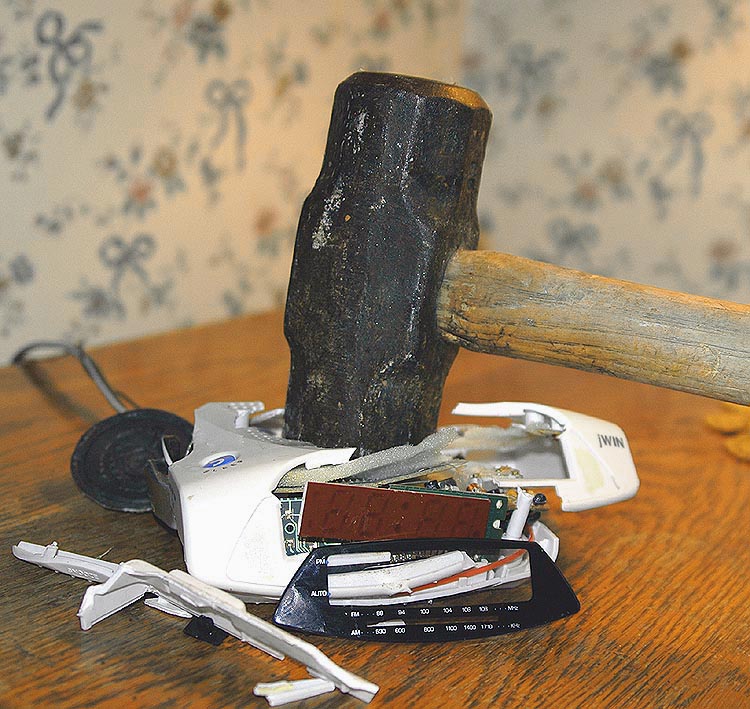
I think there’s an expectation that having cancer is going to make my work, relationships, or goals in life more meaningful or important. But why?
Shannon is going to be a guest on tonight’s Stupid Cancer Show about cancer and the environment. (He’s an environmental lawyer for the Natural Resources Defense Council). Preping for our interview, I asked – in my best Terry Gross voice – “Did meeting your wife, a cancer patient, reinforce your commitment to your work on the environment and healthcare outcomes?” His answer: “No. Not really. I cared about this work to begin with.” Reason #210 why I love this man.
I guess the assumption is that we’re all just a bit too lazy, unkind, uncommitted, shallow, or careless in our lives and need cancer as a wake up call. But, I think I had a pretty meaningful life before my diagnosis, just as Shannon had a pretty great commitment to public health issues before meeting me. I’m mostly happy for people who’ve gotten more meaning in their lives from cancer. But I’m also a bit sad for what their lives must have looked like prior to cancer if they needed this disease as a makeover.
The burden is on cancer patients to live profoundly meaningful lives because we’ve seen the light. Be shouldn’t we all strive to lead meaningful lives, be good to our neighbors, smell the roses and help old women across the street whether we’ve had cancer or not? Just turn on the news, walk down the street, empathize with anyone who has lost something or someone. Wake up calls are everywhere.
It was a relief for me to hear Shannon say that my cancer was not a wake up call for him. Call me crazy, but I’d like to think that the greatest assets I have to give him are not two malignant tumors in my neck.
Was cancer a wake up call for you? If so, in what ways? If not, why not? Do you ever feel like there is an expectation that you should have become a more whole or better person because of your cancer?
Read Everything Changes: The Insider’s Guide to Cancer in Your 20s and 30s to learn more about Greg and other young adult cancer patient who said they’d choose to get cancer again because of the positive change it made in their lives.


May 31, 2023
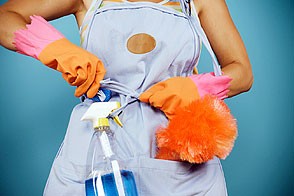
I try to reduce my exposure to household carcinogens without entering the territory of enviroparanoia. I buy products that are inexpensive, free of scary ingredients, and don’t have heavy perfumes or essential oils (I just don’t like the smell). I also like products that actually work. Buying something green that only does half the job is just a waste. Here are the products I like and a few I don’t:
Dr. Watkins – All purpose cleaner, lemon scent, available at Target. Cleans counters, tile, bathroom, entire kitchen.
Bon Ami – This stuff has been around for 120 years. That’s before most scary chemicals were even invented. It works like magic on my tub and faucet handles, and cleans super skanky pots and pans like a dream.
Vinegar and Water – Cleans windows, hardwood floors, and mirrors.
Automatic Dishwasher Detergent - Ecover and Seventh Generation have failed to do the trick. Instead, we’ve been using Cascade, which seems like it belongs in a super fund site. Any recommendations?
Has cancer or any other illness made you more conscious of the cleaners you use? What are your favorite green cleaners? Which ones don’t you like? Can you recommend anything for my dishwasher dilemma?


May 13, 2023
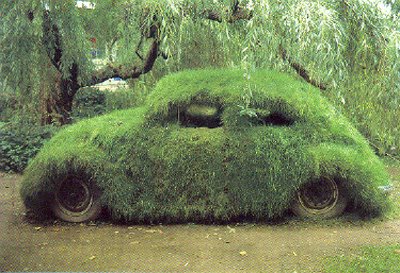
Shannon and I are ditching our car for two months and seeing what life is like. (Evil Chicago potholes caused $1,800 of damage to our car, and we don’t want to shell out the cash to fix it.)
In a way I’m glad - it is forcing me to actually do something that I often complain about: get serious about cancer and the environment. Did you know that four major chemicals released by car engines are proven to cause cancer in animals and humans?
I’m not going to change the world or reduce young adult cancer incidence rates. In fact, I think it is dangerous to think that individual actions, like using CFL light bulbs or buying eco-crap, are going to solve the decline of our environment. Nope, for that we need tougher regulations on car emissions, investment in public transit, and more walkable communities.
But until then, I am glad to be trying out a life that is just a tad bit less hipocritical…. how can I bitch about cancer and the environment while I’m driving my car everywhere?
Having no car has been an adjustment and sometimes frustrating. But there are some big time benefits too: I get more exercise, meet more neighbors walking, and read more and see cute kids on the bus. Plus we joined a non-profit car share so we have wheels for big errands. This would not have worked if I still had treatment fatigue, and I might not like it come winter. We’ll see…
How often do you drive? Do you ever equate daily activities of your life with carcinogenic output? If you have had major illness, treatment, surgery, did it affect your driving habits? Have you ever used the American Cancer Society’s Road to Recovery program?


April 29, 2023
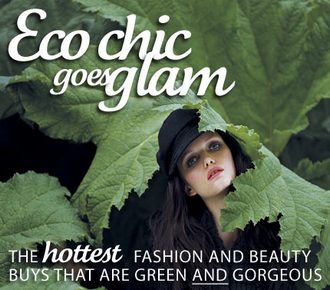
As a teenager I made out in abandoned factories, where mysterious steel drums leaked on the floors and industrial grime came in all colors and textures. I guess high schoolers in farm country drink Boonsebury and go cow tipping, but in Pittsburgh, we smoked pot on slag heaps.
Did growing up amid Pittsburgh’s steel town relics contributed to my cancer? And more importantly, how do I reducing my current exposure to carcinogens. This is the subject of my guest post featured yesterday on Blue Planet Green Living.
Survivors and healthy folks alike are focusing heavily on how to be more green, but going green is not just a consumer lifestyle trend; it is a public health issue that will never be solved one eco-purchase or CFL at a time.
Let’s face it, shopping for organic sheets at Bed Bath and Beyond is way more seductive than educating ourselves about coal fire power plants or vehicle emissions standards. But buying more crap – even if it is eco-organic crap still makes a negative impact on the environment. As young adult cancer patients, often with low incomes and medical debt, we are better off resisting most eco-marketing and buying less in general.
Indoor air quality is a major health issue and choices about the chemicals we eat and wear are important. But as a cancer patient, I’ve gotta look beyond my consumer habits and stop ignoring the big enviro-elephants. My eco lip gloss does not matter if toxic power plant emissions are drifting in the wind.
Do you think something in your environment when you were a kid caused your illness? Are eco-products affordable for your budget along side healthcare costs? How do you decide what to buy? Are you enticed by beautiful, hip, enviro marketing? Do you know what a coal fire power plant is? Is environmental policy interesting to you, a bore, does it matter?


February 21, 2023
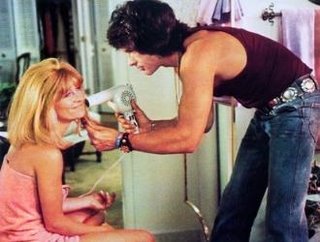
With medical bills, college loans debt, and entry level jobs, most young adult cancer patients cannot stroll into Whole Foods and shell out $39.95 for a 5-oz. bottle of Dr Hauschka’s body moisturizer. But, that doesn’t mean you have to slather your skin or wash your hair with superfund site sludge either.
Beth, the blogger at smartfamilytips, has scoured the extensive Skin Deep Cosmetics Database in search of personal care products that are low in toxicity, affordable, and available outside of the bourgeoisie bodycare belt. Beth’s list includes products available at Target and CVS, and ranging in price from White Rain to Burt’s Bees. An important note that Beth makes is that just because one specific Pantene, L’Oreal, and Maybelline product is on the list does not mean that all of those company’s products are eco friendly.
Another option is to crack open the kitchen cupboard and your fridge. I’ve been using olive oil all winter long to moisturize. I have yet to wash my hair with eggs.
Has cancer made you want to reduce the toxins you apply to your skin and hair? If so, how does it affect your wallet? What brands do you choose to use? Do you ever venture into homemade beauty products?



![]()
![]()





 “Everything Changes is, without doubt, the most forthright, emotionally sophisticated, and plain-old valuable book of its kind I've seen.”
“Everything Changes is, without doubt, the most forthright, emotionally sophisticated, and plain-old valuable book of its kind I've seen.”












